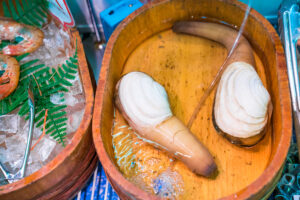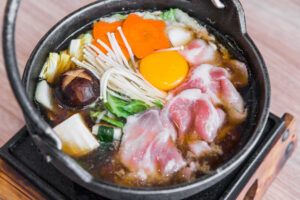In the heart of Japan, a country renowned for its delicate tea ceremonies and rich matcha flavors, brews an equally profound love affair with coffee. This passion for coffee is not a modern trend but a deep-seated part of Japanese culture that stretches back over a century. Japan’s intricate relationship with coffee, from the traditional kissaten to the sleek third-wave coffee shops dotting its cities, illustrates a fascinating blend of history, innovation, and artistry. This article delves into the depths of Japan’s coffee culture, exploring how it has evolved and what makes it uniquely captivating.
1. Japan’s Century-Old Coffee Love Affair Begins
The history of coffee in Japan dates back to the late 19th century, introduced through its ports by Western traders. Initially, coffee was a luxury commodity, enjoyed by the upper class and intellectuals who frequented the first coffee houses. These establishments became hubs of political and cultural discussions, laying the groundwork for Japan’s coffee culture. By the early 20th century, coffee had begun to seep into the broader Japanese lifestyle, signaling the start of a century-old love affair.
2. From Tea to Coffee: Japan’s Cultural Shift
Although tea remains a staple of Japanese culture, coffee has carved out its own significant place. The shift from tea to coffee in Japan is not a replacement but an expansion of the palate. The transition reflects Japan’s openness to global influences while maintaining a strong sense of tradition. Coffee has been integrated into daily life in a way that respects the ceremonial aspects of tea culture, adapting to fit the Japanese aesthetic and sense of hospitality.
3. The Birth of Kissaten: Japan’s First Coffee Shops
Kissaten, Japan’s traditional coffee shops, played a pivotal role in the spread of coffee culture. Emerging in the early 20th century, these establishments offered more than just coffee; they provided a space for social interaction, intellectual exchange, and relaxation. Kissaten were characterized by their meticulous service, classic decor, and often, a selection of sweets and snacks to complement the coffee. They became cultural landmarks, embodying the Japanese dedication to craftsmanship and quality.
4. Tokyo’s Coffee Scene: A Blend of New and Old
Tokyo’s coffee scene is a vibrant tapestry that weaves together the old and the new. On one hand, you have the traditional kissaten, with their Showa-era ambiance and meticulously brewed coffee. On the other, there are modern third-wave coffee shops that focus on the origin, roasting profiles, and brewing techniques. This juxtaposition highlights Tokyo’s ability to honor its history while embracing innovation, making it a fascinating destination for coffee enthusiasts worldwide.
5. The Art of Japanese Iced Coffee
Japanese iced coffee, known for its clarity and flavor, is a testament to Japan’s innovative approach to coffee. Unlike the cold brew method, Japanese iced coffee is brewed hot directly over ice. This method, perfected in Japan, preserves the coffee’s aroma and acidity, resulting in a refreshing and flavorful cup. It’s a favorite during the humid summer months and showcases the Japanese penchant for perfection and precision.
6. Siphon Coffee: Japan’s Gift to the World
Siphon coffee, a brewing method that looks more at home in a chemistry lab than a kitchen, has been popularized globally by Japan. This theatrical technique involves using vapor pressure and vacuum to brew coffee, resulting in a clean, vibrant cup that highlights the coffee’s delicate flavors. Siphon coffee embodies the Japanese dedication to detail and the constant pursuit of excellence.
7. Third Wave Coffee Takes Tokyo by Storm
The third wave coffee movement, with its focus on high-quality beans, ethical sourcing, and artisanal brewing methods, has found a fervent following in Tokyo. This movement treats coffee as an artisanal product rather than a commodity, aligning with Japan’s long-standing appreciation for craftsmanship. Third-wave coffee shops in Tokyo often feature baristas who are deeply knowledgeable about the coffee-making process, from farm to cup, and are passionate about educating their customers.
8. The Unique World of Japanese Coffee Chains
Japanese coffee chains, such as Doutor and Blue Bottle Coffee’s Japanese branches, offer a unique take on the coffee shop experience. These chains blend the efficiency and consistency expected of a franchise with the quality and attention to detail characteristic of Japanese culture. With their own distinct approaches to coffee, these chains contribute to the diversity and richness of Japan’s coffee scene.
9. Coffee in Japanese Literature and Art
Coffee has percolated through Japanese literature and art, becoming a symbol of modern life and solitude. Novels and poems frequently reference coffee, using it as a backdrop for narrative and introspection. Similarly, visual arts depict the act of coffee drinking and coffee shops as spaces of contemplation and community, reflecting the cultural significance of coffee in Japan.
10. The Rise of Home Brewing Among Japanese Coffee Aficionados
The appreciation for coffee in Japan extends into the home, with a growing number of Japanese coffee enthusiasts embracing home brewing. This movement is driven by a desire for a personalized coffee experience and a deeper understanding of the brewing process. Specialty coffee shops and online platforms cater to this trend, offering a wide range of equipment and beans for home brewers.
11. Coffee Festivals and Competitions Across Japan
Coffee festivals and competitions are becoming increasingly popular in Japan, celebrating the art and science of coffee making. These events provide a platform for baristas to showcase their skills, for roasters to present their beans, and for coffee lovers to deepen their appreciation for the beverage. They also foster a sense of community among participants, united by their passion for coffee.
12. The Future of Coffee Culture in Japan: What’s Next?
As Japan looks to the future, its coffee culture continues to evolve. Innovations in brewing technology, a growing interest in sustainable and ethically sourced beans, and the fusion of coffee with other elements of Japanese culture suggest an exciting path ahead. The enduring love affair with coffee in Japan is a journey of constant discovery, refinement, and celebration, promising new flavors and experiences for generations to come.
Japan’s deep-brewed love affair with coffee is a multifaceted narrative of tradition, innovation, and artistry. From the hushed reverence of kissaten to the bustling energy of modern coffee festivals, coffee culture in Japan is both a reflection of its past and a window into its future. As this culture continues to evolve, it remains rooted in the principles of craftsmanship, quality, and community, ensuring that coffee will continue to be an integral part of Japan’s cultural landscape.








